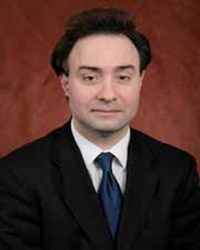
Medical errors during hospital stays make headlines, but far more common are problems that occur after patients — especially older ones — go home. Little research has focused on the critical weeks after discharge, and none has focused on rural patients — until now.
Dennis Tsilimingras, assistant professor at the Florida State University College of Medicine, has been awarded a two-year, $908,000 grant from the federal Agency for Healthcare Research and Quality. With the participation of the Tallahassee Memorial Hospitalist Group, this study will monitor approximately 600 patients — half of them rural — for three weeks right after they’re discharged.
Ultimately the goal is to recommend ways to reduce post-discharge problems, which often involve medications, said Tsilimingras, director of the medical school’s Center on Patient Safety.

“Dr. Tsilimingras’ grant is designed to evaluate how safe our health care system is when patients transition their care from hospital to home,” said Les Beitsch, associate dean for health affairs. “He may play an instrumental role in making patient care safer and better.”
Tsilimingras (pronounced “chili-MING-gras”) and his fellow researchers will be looking for medical errors that injure patients — or, in the language of patient safety, “post-discharge adverse events.”
He said the only previous U.S. study done, in Boston, found that 19 percent of discharged patients experienced an adverse event. When that study was replicated in Ottawa, the rate was 23 percent. Tsilimingras said those were five to six times higher than in-hospital rates. Neither study looked at rural patients.
The study has three specific aims:
- Identify adverse events and determine which ones could be prevented or at least be less severe. Researchers’ hypothesis is that the rate among the rural population will be higher than among the non-rural because of less access to follow-up health care.
- Identify the causes. Their hypothesis is that most adverse events will be related in some way to medications, sometimes resulting from a miscommunication between the patient’s regular physician and the hospital physician. In the Boston study, medication problems were a factor in two-thirds of all adverse events after discharge. And because older patients typically have more medications, they more often have adverse events.
- Examine other factors that could play a role, such as whether the patient didn’t have a primary care physician, or whether the patient had a chronic disease before entering the hospital — and, if so, the severity of that disease.
Tsilimingras hopes this study can lay the foundation for a screening tool that would flag any patients who are particularly at risk. Equipped with that information, hospital physicians would not discharge those patients until the risk factors had been addressed.
In the meantime, Tsilimingras has this advice for patients: “Always talk to the physician. Always ask as many questions as possible. Always have a list of your medications with you. Before you’re discharged, make sure you know what you’re supposed to do next. Make sure you know what to tell your own physician, because you can’t assume he or she has spoken with the hospital physician.
“And if you can’t take these steps, bring along a family member who can.”
For more information, contact Tsilimingras at (850) 644-2362 or dennis.tsilimingras@med.fsu.edu.




